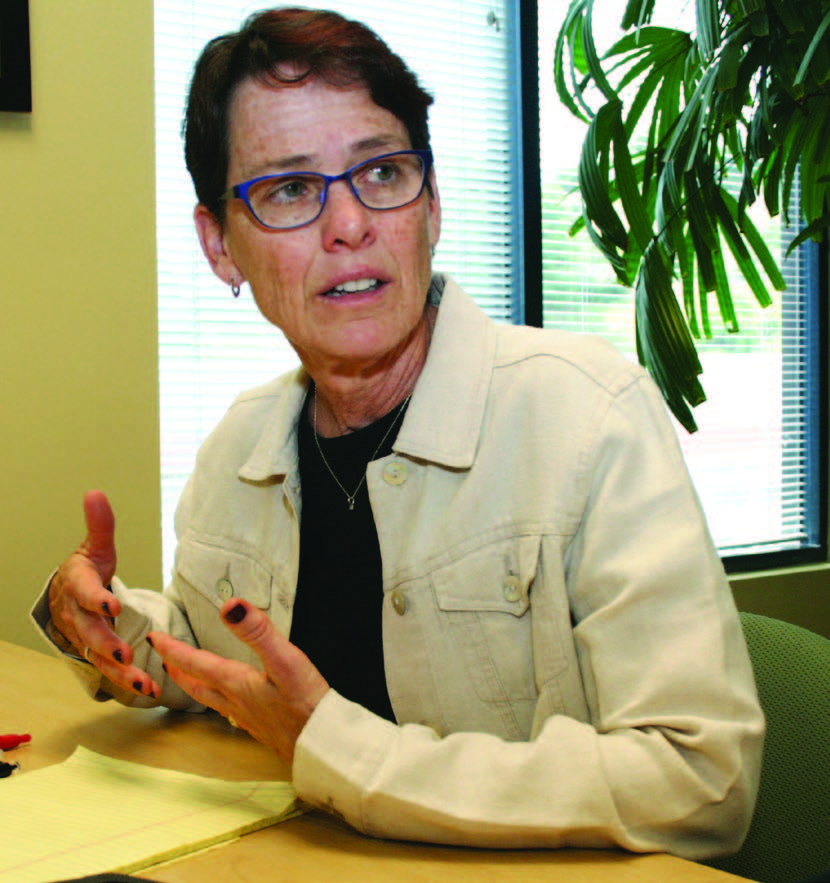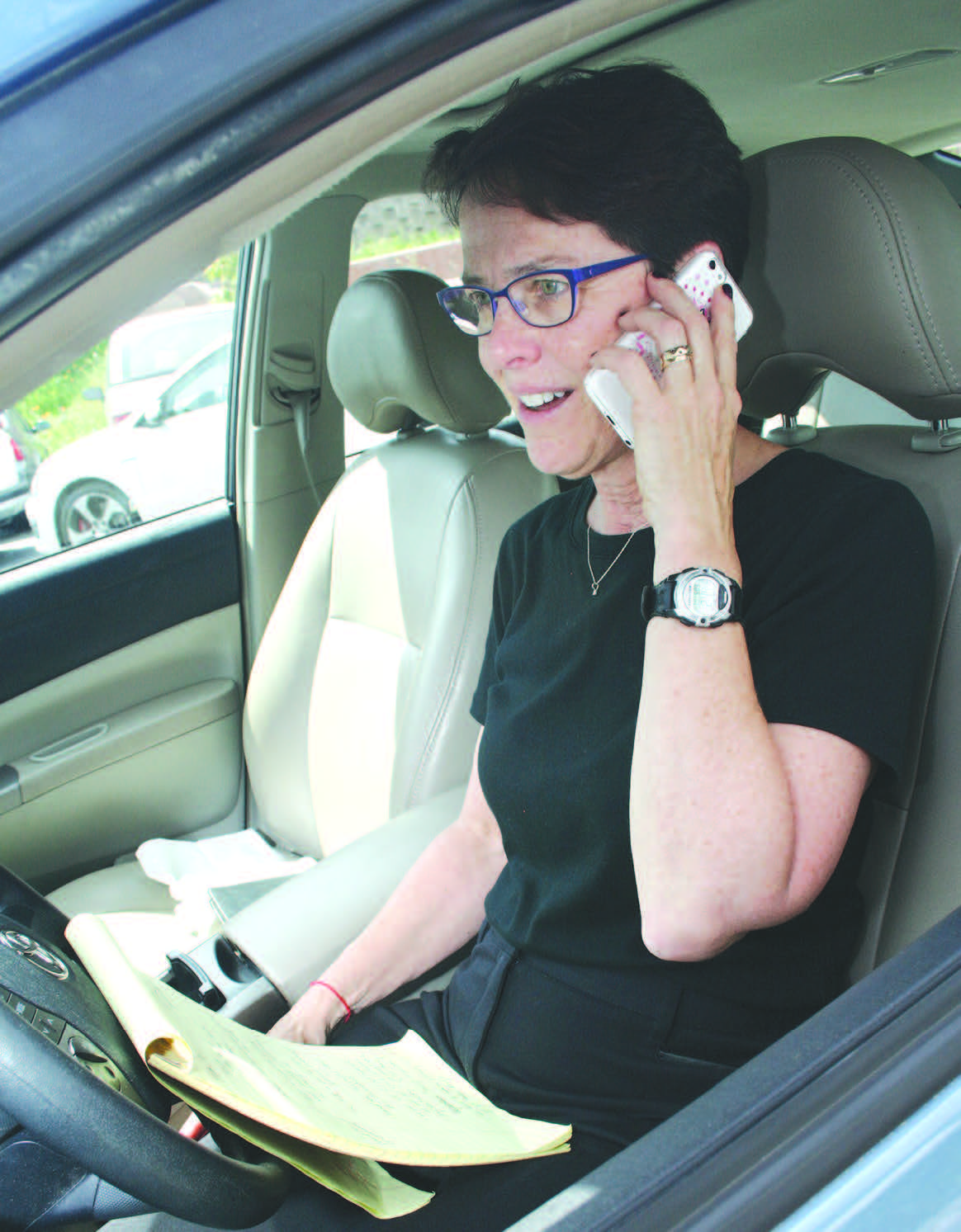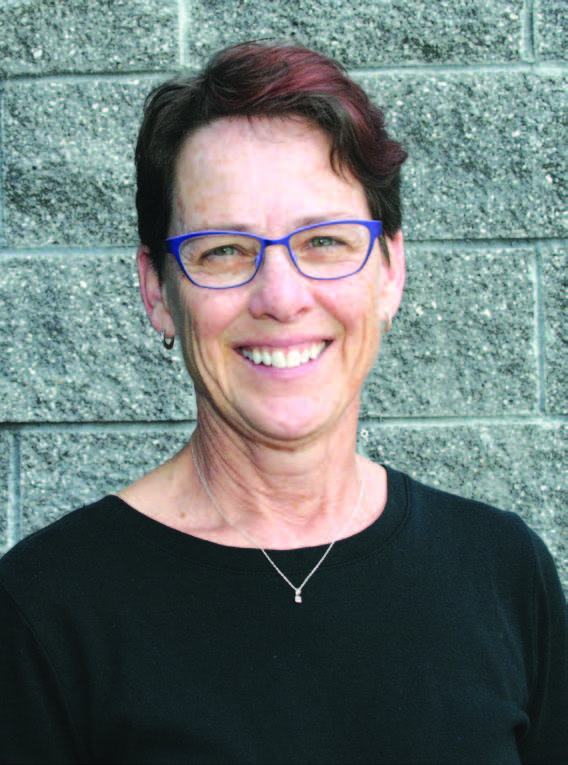Hospice Care in the LGBT Community: Interview with Pam Peirce, LCSW, of Hospice by the Bay
It was an honor for us to sit down a few days ago with Pam Peirce, LCSW, at Hospice by the Bay, to learn about hospice care and the unique end-of-life issues facing the LGBT community. Peirce, who lives in San Francisco with her wife, has worked in hospice care for 20 years, providing psychosocial support to clients and their loved ones. She currently manages a team of hospice nurses, social workers and chaplains.
San Francisco Bay Times: What is hospice care?
Pam Peirce: Hospice is specialized end-of-life care that addresses clients’ medical, emotional, and spiritual needs; eases their pain and symptoms; and, provides support to caregivers and loved ones. Our goal is to maintain the quality of life in one’s final days. Hospice is a concept of care, not a place. Hospice by the Bay services are provided at the bedside—wherever our clients call home. Affiliated with UCSF and certified by Medicare, we serve San Francisco and four other Bay Area counties and are a not-for-profit organization.
Hospice by the Bay also serves clients living in facilities such as Coming Home Hospice, Maitri, and the Zen Hospice Project Guest House. We often help arrange for clients to move into these facilities when they can no longer stay at home.
San Francisco Bay Times: What’s unique about caring for members of the LGBT community? How does Hospice by the Bay work with LGBT clients?
Pam Peirce: Historically, the LGBT community has been reluctant to seek health care from straight providers. Why? Lack of health insurance, stigma, and lack of safety in a mainstream healthcare environment. The situation has greatly improved, but facing a terminal illness is hard enough without wondering if a team of healthcare workers will treat you with respect and dignity.
At our office, we have a sign posted with a rainbow triangle that says “safe space” to let members of the LBGT community know they are welcome. When we enter the homes of our clients, we also offer this deep level of safety that goes beyond having a gay nurse or a lesbian social worker. All our staff, regardless of their own orientation or identity, provides highly skilled care suitable to an individual’s situation, without judgement.
We are also well aware that social isolation can be more pronounced. This can have devastating consequences when there are no caregivers who can help you stay at home. That is why we are so glad to work closely with facilities like Coming Home Hospice, which has historically served people living with HIV, but is now open to those with other illnesses.
The challenges of a life-threatening illness can be compounded by other issues: questions of reconciliation with families of origin when there has been harm done in the past; trauma and compassion fatigue from the multitude of deaths from HIV in the 1980s and 1990s; and, financial stress as a result of employment and housing discrimination. Members of the transgender community can suffer the most from this isolation and discrimination; their desire to die in their preferred gender is often disrespected.
Having an understanding of all of these dynamics helps us be better prepared to offer services to the LBGT community.
In many respects, our community is as diverse a population as the City is as a whole. We take pride in being open to individual needs and situations. Is the client transgender? Transitioning? Part of the leather community? Living with one partner, multiple partners, in a collective, or alone in an SRO? Every client situation is unique, and that’s what we have honored for the past 41 years.

San Francisco Bay Times: Isn’t end-of-life decision-making also a challenge?
Pam Peirce: Having a legal document that lays out your end-of-life wishes is particularly critical for our community. I’ve had an Advance Directive for years, as have many in the LGBT community.
But people forget. It can be very difficult if you don’t have a legal partner. Do you want family members whom you haven’t seen for years to make decisions for you or your family of choice?
I recall working with a gay couple who had been together over 40 years, but did not have an Advance Directive and were not registered domestic partners. The surviving partner lost the right to determine funeral plans after the death. No one wants that outcome.
It is important for all of us to have the conversation about end-of-life wishes while we are still healthy. Our website (www.hospicebythebay.org) has information about Advance Directives and how to “Start the Conversation.”
San Francisco Bay Times: What happens if someone cannot afford hospice care?
Pam Peirce: Hospice by the Bay never turns anyone away, regardless of health insurance status or ability to pay. Many of our clients are covered by private insurance, Medi-Cal or Medicare, but we provide care to those without insurance as well. Decisions about the care provided are independent of insurance status.
We have a unique program to fund caregiving for our lower income clients, beyond what is usually provided by insurance. As a non-profit, we are able to raise donations to support this program.
San Francisco Bay Times: Does the fact that you are a lesbian make a difference in your work?
Pam Peirce: On one level, it doesn’t. All of my clients, their caregivers and friends get my full attention and support.
On another level, it makes a big difference. As a member of the LGBT community, it is a tremendous help when I am serving a client who has been marginalized or is not part of the dominant culture. I understand the significance of what they are going through in ways that a straight person might not. It’s not just about empathy—it’s about looking at life through a different lens.
The fact that I am a manager is also helpful because I can be an effective advocate. I am in a position to make sure that issues important to the LGBT community are factored into how we deliver care.
It is better to learn about hospice care before you really need it. We invite you to call Hospice of the Bay anytime, if only for your peace of mind 415-626-5900, or visit www.hospicebythebay.org










Recent Comments